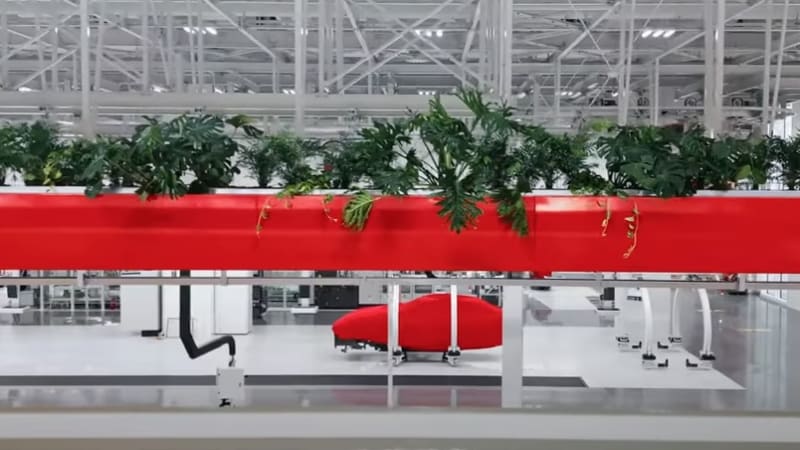Take a video tour of Ferrari's spotless new 'e-building' factory

MARANELLO, Italy — Ferrari will use its new production site to boost manufacturing flexibility and shorten the time needed to develop and roll out new models, rather than to increase output, the CEO of the Italian luxury sports carmaker said on Friday.
Ferrari’s so called e-building in its home town of Maranello, northern Italy, for which it has invested around 200 million euros ($214 million), will also produce its first fully electric (EV) car, expected to be launched at the end of next year.
“This building will allow us to shorten time to market or product development time,” CEO Benedetto Vigna said at the plant’s inauguration, adding these two activities sometimes currently overlap on existing assembly lines.
Vigna said Ferrari was not pushing for volume but for value.
“So, more money per car basically. We want to grow the company but not because we increase volumes,” he said, adding a key tool to expand revenues from car sales was personalisations.
Personalisations are the touches that a customer requests to make the model more suited to their tastes, both inside and out.
“We want to have more tools, technology tools … more flexibility to accommodate the need of more personalisation of our clients,” Vigna said.
Ferrari’s first EV will cost no less than half a million euros, Reuters reported earlier this week, and a second EV model is already under development.
The 42,500 square metre (457,466 sq. ft) new facility, which adds to the existing one in Maranello, gives Ferrari an additional car assembly line. It increases the company’s overall theoretical output capacity to around 20,000 cars per year, versus less than 14,000 it delivered in 2023, Reuters has reported.
The company will also make key in-house components for EVs at the new plant, including axles, motors and battery assembly.
However, it will also use it to produce hybrid and traditional combustion-engine models, as it has plans to offer in the future a mix of the three engine types, to serve different kind of clients.
“The plant … reflects the principle of technological neutrality,” Ferrari said in a statement.
It “will allow Ferrari to reorganise and reallocate all production activities more efficiently among its existing facilities in Maranello, increasing its ability to adapt quickly to production needs,” it added.
The new plant will roll out its first cars in January of next year, while series production of Ferrari’s first EV will start in January 2026, Vigna said.



